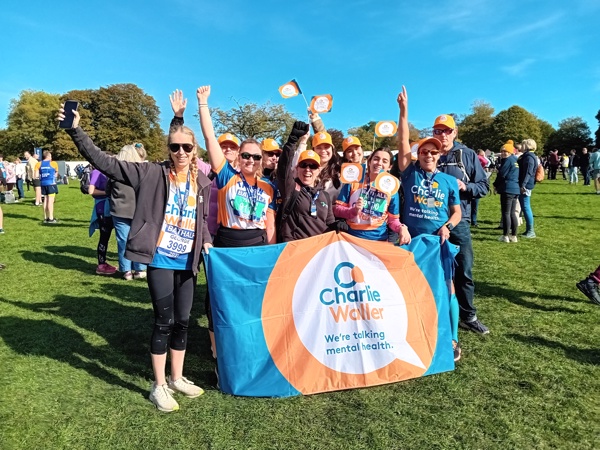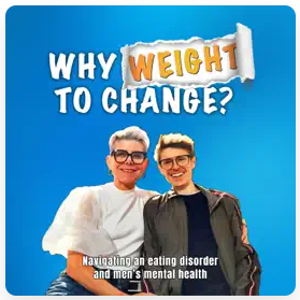Eating disorders: support for families
September 13 2021


Since my son developed anorexia at the age of 12 in 2002, I have known that caring for a loved one with an eating disorder is exhausting, distressing and terrifying.
“How did this happen to our lovely ‘normal’ family?” is a very common reaction. After the initial shock, carers spring into action only to find their cries for help often fall on deaf ears and their loved ones vehemently insist there is nothing wrong. Very quickly carers feel they are drowning, they have tried everything and don’t know where to turn next.
However, when offered the opportunity carers are extremely motivated to learn the necessary skills to support their loved one and, in my experience, they can pick them up very quickly. This is why I have been delivering the evidence-based New Maudsley carer skills workshops for over ten years. They really do help and I have many heartfelt testimonials to back this up.
The restrictions of COVID were a perfect storm for eating disorders (ED).
Much has been written about the increase in new cases, and in lapses and relapses for those who had been well on their way to recovery. This has led to longer waiting lists for initial assessments and even longer ones for specialist beds.
Urgent cases should be seen by a specialist within a week according to the UK government’s NICE guidelines, which specifically recommend
- People with eating disorders should be assessed and receive treatment at the earliest opportunity
- Early treatment is particularly important for those with or at risk of severe emaciation and such patients should be prioritised for treatment.
I have supported a huge number of families affected by eating disorders during the pandemic. My personal experience is that there are many cases amongst children and teenagers who have had all the joy and structure taken out of their world – no sport, drama, music, dance and social gatherings.

As my daughter put it early on, “This is like being confined to an old people’s home.”
In response, some young people have focused their energy on healthy eating and regular exercise, in line with government advice. For most young people, this is a healthy response. However, there can be a fine line between a positive relationship with food and exercise and the emergence of behaviours which may indicate eating disorders. These may include restrictive eating and excessive exercise as a way of coping with feelings of distress and loss of control that have come with the pandemic.
It is not easy for families to spot the tipping point. Children and teenagers can lose weight alarmingly quickly if their exercise and diet gets out of balance. The eating disorders that can result are not a choice for those who are vulnerable to them.

This has led to hundreds of severely ill young patients being admitted to general paediatric wards. The nursing teams on these wards are excellent at stabilising medically fragile and unstable patients. Often nasogastric feeding is administered from an early stage as the eating disorder renders the distressed young patient unable to eat or drink in the normal way.
Thank goodness the NHS is equipped to deliver this emergency life saving care! Back in 2002, my son was similarly cared for in a paediatric ward, but only for two days, before being moved to a specialist eating disorder bed in a local adolescent mental health unit. Since COVID, these vulnerable patients are being held for weeks and months with essential physical care but no specialist input. This usually leads to the thoughts and ‘voices’ patients experience as a result of their eating disorder becoming more and more embedded as they go unchallenged for long periods.
Two families whose loved ones were treated in a general hospital for several months have kindly offered their thoughts on improvements that could make a real difference for patients in non-specialist beds:
Parents of a 15-year-old girl whose general hospital stay amounted to 77 days before she was moved to a specialist unit
The hospital’s main focus is the physical side of health, not the mental side. All patients need mental support with any illness, so the longer they are in [a general] hospital the worse mentally they get. At the start of this journey, we had no knowledge - we didn’t know what was needed and what could or couldn’t be provided. To families about to embark on a similar journey, we’d say talk, share and try and catch it as early as possible. Reach out to friends and family to support you and any siblings.Knowledge is essential. Attending eating disorder carer workshops at an early stage is beneficial - they will give families a better understanding of the illness.
Parents of 12-year-old boy whose general hospital admissions amounted to 43 days before he was moved to a specialist unit for four months
“I totally agree about the physical not mental support in the hospital. A simple thing to put in place for eating disorder patients on a general paediatric ward would be a standard protocol that could be complied with input from parents and former patients.
“We were forever repeating that we had to eat with our son, that packaging on food should be removed, and that it should be the parent or nurse responsible who should choose the food options each day. We had to spell out to each new member of staff that food was his medicine, and it was not being kind to let him not finish, despite the levels of distress eating caused him.
“Perhaps volunteer parent support [could be put in place] similar to Beat’s Echo peer coaching but in person. I would certainly do that, so that the volunteer could take on some of the battle on the part of the exhausted parent. I also think we need to have that sort of thing in the community to try and avoid the need for hospital admissions in the first place.
“We battled hard to get a side room; being so underweight, our son was more susceptible to other illnesses on the ward, and did not have the reserves to be able to fight off any bug or virus. It meant that meal times and nights could be calmer, and we could support him better. If it had been in place from the outset of his admission, it may have made a difference; by the time it was in place, he was too far gone, and only a specialist eating disorder inpatient clinic could help him.
“GP awareness must be increased. As a minimum, having the Beat early warning signs “kips, skips, hips etc” poster in every surgery would at least signpost worried parents (and doctors) to more information.
“And we need more opportunities for carers to learn appropriate skills. Workshops on eating disorders – such as the New Maudsley skills workshops – need to be available to all carers with responsibility for feeding their very sick child. [Note: in the UK the Family Based Therapy FBT model dictates that parents undertake this role in Phase One of treatment]. Such workshops should be available at the time of diagnosis, at the latest.”
New Maudsley Approach Workshops
I deliver workshops for parents and carers using the New Maudsley method. They are full of practical tips, real life scenarios and case studies. They are designed to help carers develop self-reflective skills in order to model to young people confidence, compassion and the courage to take risks. They encourage participants to experiment with changing their own behaviour so they can be more helpful to their loved one with the eating disorder.

Advice for any families whose loved one is showing signs of an eating disorder
- If you are worried, write down everything you are noticing- in particular changes around food (especially the emergence of rigid rules), mood, body image and self-esteem, exercise, social withdrawal and weight.
- Familiarise yourself with the early warning signs. Useful tips on this can be found at org.uk) and Family Mental Wealth
- Show compassion to your loved one and offer support - “I notice you are struggling and I am here to help”, rather than “I think you have an eating disorder”
- Book an appointment with the GP at the earliest opportunity (even if your local eating disorder service has a self-referral option it is likely the GP will need to do physical tests.) Beat has a useful leaflet GP Leaflet (First Steps)
- Be persistent. If your GP doesn’t acknowledge there is a problem, ask for a second opinion and/or keep going back every week if necessary to provide an update around the signs you are observing
- Talk to others who have experience of eating disorders. This might be family and friends, a local support group, or any of the eating disorder charities such as BEAT, AnorexiaBulimiaCare, FEAST
- Sign up for FIRST30Days: It’s For All Parents! - FEAST (feast-ed.org) You will receive an email every day for 30 days packed full of practical tips and useful resources. Created by parents and carers for parents and carers
- Join support groups or networks and sign up for carer skills workshops at the earliest opportunity: knowledge and understanding can really help you to come alongside your loved one, connect and support them in their battle with their eating disorder
- Look after yourself. This is crucial. Take time out as much as you can. This may entail asking others to help out. You will be role modelling to your loved one that there is more to life than their eating disorder, and also that change is possible.
- There are further tips at Golden Guidelines for Carers - newmaudsleycarers-kent
Very recently someone asked me how I keep my energy levels and passion going. It is very simple. Bringing carers together in a collective group, whether it be a carer support group chat or an intensive series of workshops, is so empowering and energising.
Carers’ ability to show their vulnerability in this safe, confidential, non-judgemental space, and their willingness to share experiences and ideas, is both humbling and truly exciting. Carers come to these sessions because they are in the thick of it and sometimes it is impossible to see the light at the end of the tunnel. The light is there, and if these sessions can give families even a tiny glimpse of that light, then I know I have achieved my purpose.
My wish is that every family affected by eating disorders should know:
“You are not alone. Look forward not back and never give up HOPE.”
Related
Popular
Upcoming event

Join us for the Bath Half Marathon to support young people and their mental health!

The Charlie Waller Trust
The Charlie Waller Trust is a registered charity in England and Wales 1109984. A company limited by guarantee. Registered company in England and Wales 5447902. Registered address: The Charlie Waller Trust, First Floor, 23 Kingfisher Court, Newbury, Berkshire, RG14 5SJ.
Copyright © 2025 The Charlie Waller Trust. All rights reserved.






